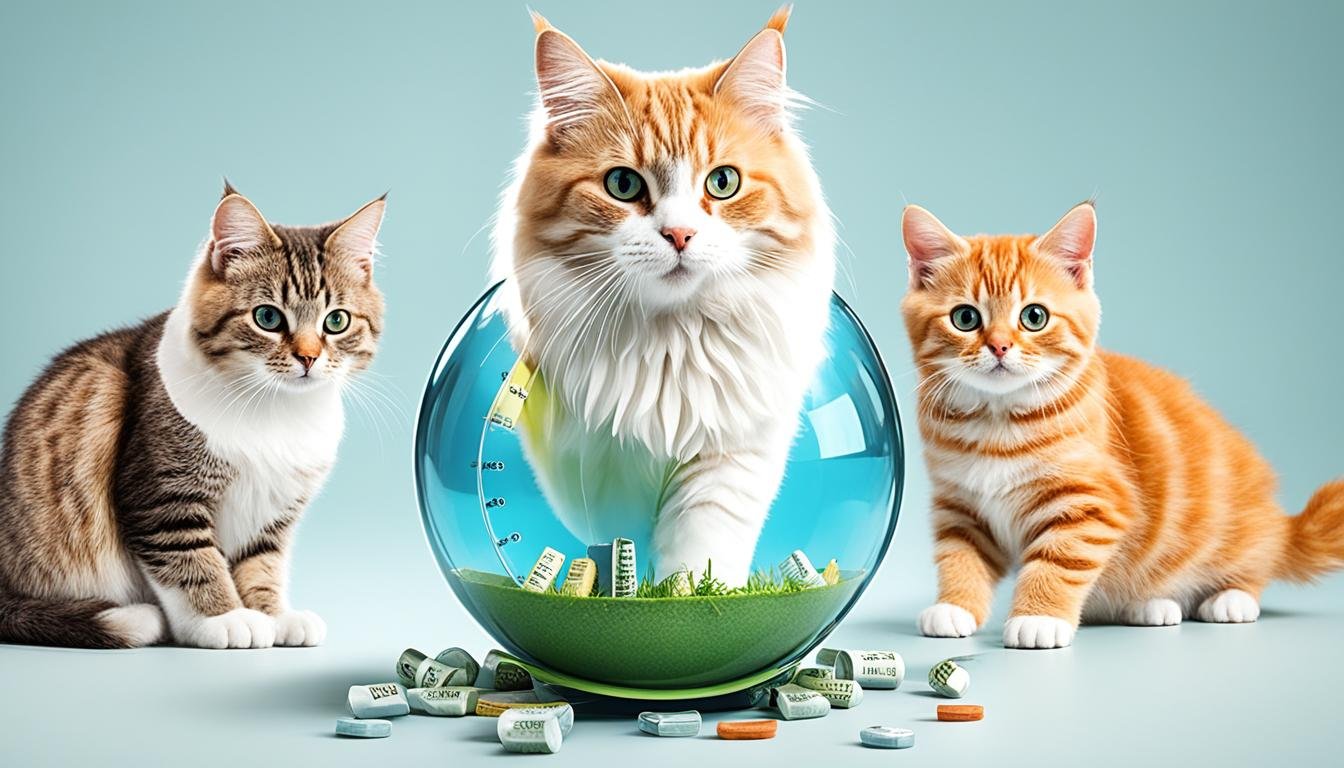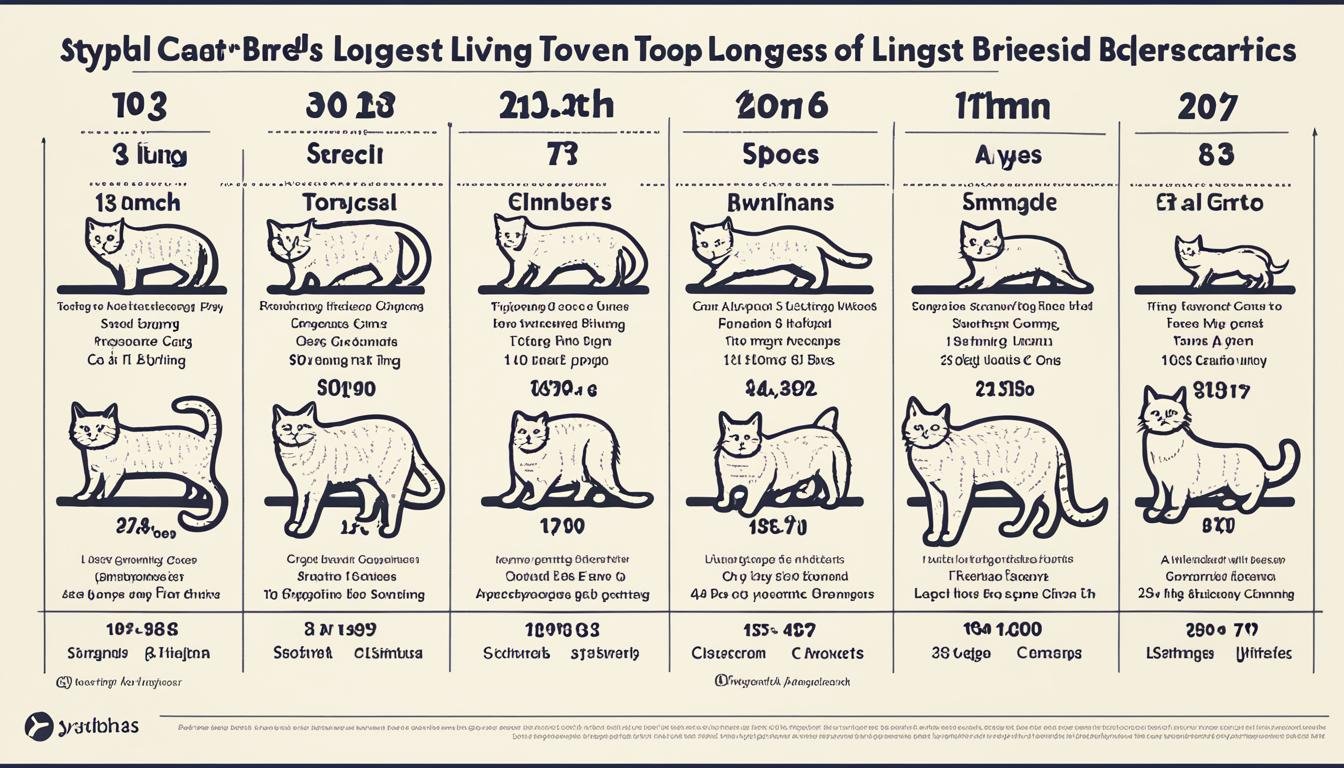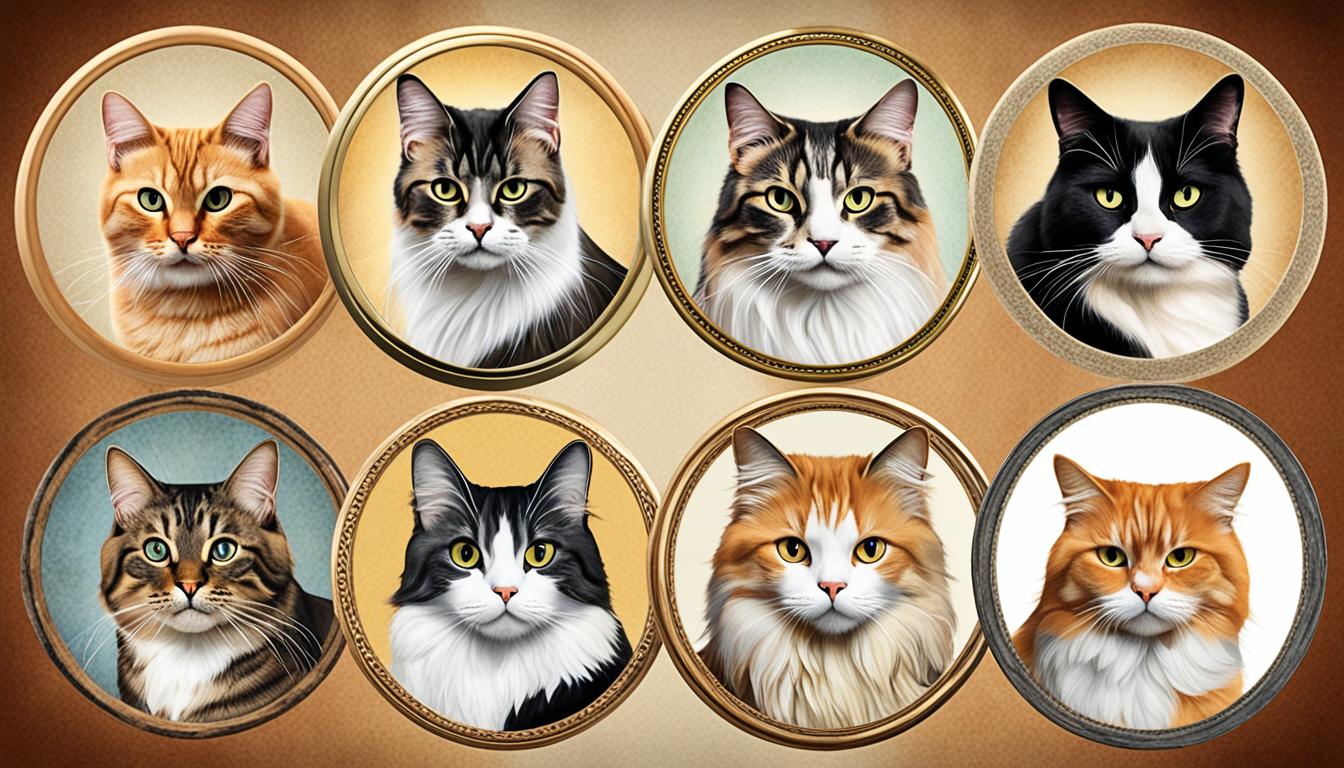Choosing a cat as a pet means knowing how long they can live. Some cat breeds live longer than others, affecting your feelings and wallet. This guide looks into why some cats live longer, focusing on what makes them great for longevity.
Genetics is a big part of a cat’s health and how long they live. But, other things outside of genetics also matter. As more people want these long-lived cats, it’s key for future owners to know what to expect.
Key Takeaways
- Understanding cat lifespan is essential for potential cat owners.
- The longest living cat breeds can greatly enhance your life.
- Genetics plays a key role in feline longevity.
- External factors also greatly influence a cat’s overall health.
- Choosing the right breed is crucial for emotional and financial stability.
Understanding Cat Longevity
Cats can live different lengths of time due to many factors. It’s important for cat owners to know these factors. They include genetics, diet, healthcare, and where they live. Some cats naturally live longer than others. But, a cat’s lifestyle and its owner’s choices also affect its health and how long it lives.
Factors Influencing Lifespan in Cats
Many things affect how long cats live. Here are some main ones:
- Genetics: Some breeds live longer because of their health traits.
- Diet: Eating the right foods helps cats stay healthy and live longer.
- Healthcare: Regular vet visits and shots keep cats from getting sick early.
- Living Environment: Safe and interesting places to live help cats stay healthy in mind and body.
Common Myths About Cat Lifespan
There are many wrong ideas about how long cats live. Knowing the truth can help cat owners take better care of their pets:
- Myth: Indoor cats always live longer than outdoor cats.
- Fact: Indoor cats might be safer, but they can still get fat, which is bad for their health.
- Myth: All older cats are unhealthy.
- Fact: With the right care, many cats can stay healthy and active as they get older.
- Myth: Neutering or spaying shortens a cat’s lifespan.
- Fact: These surgeries can prevent health problems and reduce bad behaviors, making cats healthier.

Which Cat Breed Lives the Longest
Looking into the longest living cat breeds can teach us about their long lives and what makes them special. Some cats live much longer than others, often beating the average. By studying these breeds, we learn how health, happiness, and genetics are linked.
Top Cat Breeds Known for Their Longevity
Studies show some breeds live longer than others. Here are a few examples:
- Siamese: These cats usually live from 15 to 20 years. They are known for being vocal and loving. Their health is often strong.
- Burmese: Burmese cats can live between 18 to 25 years. They are playful and love being around people, which helps them live longer.
- Ragdoll: Ragdolls often live about 15 to 20 years. They are calm and gentle, which helps them live a stress-free life and live longer.
The Role of Genetics in Lifespan
Genetics play a big part in how long a cat lives. Each breed has traits passed down that affect their health. For instance, Siamese cats might get dental and breathing problems. Ragdolls might have heart issues. Knowing these traits helps in choosing the right care to make them live longer.

| Breed | Average Lifespan | Common Health Issues | Personality Traits |
|---|---|---|---|
| Siamese | 15-20 years | Dental issues, respiratory conditions | Vocal, affectionate |
| Burmese | 18-25 years | Obesity, dental concerns | Playful, social |
| Ragdoll | 15-20 years | Heart disease, kidney issues | Laid-back, gentle |
Looking at these breeds helps us understand how health and longevity are connected. By paying attention to genetics, owners can help their cats live long, happy lives.
Health Tips to Enhance Your Cat’s Longevity
Ensuring your cat’s health can make a big difference in their life span. Regular vet visits and proper nutrition are key. These steps help your cat live a longer, healthier life.
Importance of Regular Veterinary Check-ups
Seeing the vet often is key to catching health issues early. Vets provide important care during these visits, including:
- Vaccinations to protect against common diseases.
- Dental exams to prevent oral health problems.
- Screenings for conditions like diabetes, kidney disease, or hyperthyroidism.
- Nutritional assessments to ensure appropriate diet tailored to your cat’s needs.
Regular vet visits give cat health tips and keep owners updated on caring for their pets.
Nutrition and Its Impact on Lifespan
Good nutrition is key for a long life in cats. A balanced diet helps avoid obesity and health problems. Important parts of a healthy cat diet are:
- High-quality protein sources, such as chicken or fish.
- Balanced amounts of fats and carbohydrates.
- Essential vitamins and minerals.
- Hydration, often through wet food or fresh water.
Knowing what not to feed your cat is also vital. Avoid overfeeding, giving human food, or low-quality food. Following vet advice on nutrition helps your cat live longer.
| Food Type | Benefits | Risks of Avoiding |
|---|---|---|
| High-Quality Protein | Supports muscle health and energy | Muscle loss, low energy |
| Healthy Fats | Improves skin and coat health | Dry skin, poor coat |
| Vitamins & Minerals | Boosts immune function | Weakened immunity |
Following these tips and focusing on vet care helps support your cat’s health. This leads to a life full of joy and companionship.
Common Health Issues in Cats and How to Prevent Them
Every pet owner should know about common cat health problems. Cats can face issues like obesity, dental disease, and chronic kidney disease. Genetic disorders can also affect their health. Knowing about these problems helps owners take steps to prevent them.
Understanding Genetic Disorders
Genetic disorders in cats can lead to serious health issues. For example, some breeds are prone to heart disease. Regular vet visits can catch these disorders early, making treatment easier.
Preventative Care Tips
Preventing cat health problems is key. Here are some ways to keep your cat healthy:
- Maintain a Healthy Weight: Being overweight can lead to diabetes. Keep your cat active and feed them a balanced diet.
- Dental Care: Clean your cat’s teeth regularly to prevent dental disease. Use dental treats or toys for cleaning.
- Regular Vaccinations: Keep your cat’s vaccinations up to date to protect against infectious diseases.
- Spaying and Neutering: This surgery reduces health risks and controls unwanted behaviors.
The Importance of Diet and Nutrition
Ensuring your cat eats right is key to a long, healthy life. Cats need a mix of proteins, fats, vitamins, and minerals. These nutrients keep their bodies working well, boost their immune system, and help them stay healthy.
What to Include in Your Cat’s Diet
Focus on high-quality ingredients for your cat’s diet. Include proteins like chicken, turkey, and fish. Use healthy oils for fats and keep carbs low to avoid weight gain. Make sure your cat gets all the essential nutrients they need.
It’s also important to control how much they eat and how often. Feeding them at set times helps with digestion and prevents overeating.
Common Dietary Mistakes and Their Consequences
Many cat owners make diet mistakes that harm their pets. Feeding too much or giving them human food can lead to obesity, diabetes, or stomach problems. A diet without the right nutrients can hurt your cat’s health over time.
To avoid these issues, talk to a vet or a pet nutritionist. They can create a diet plan that fits your cat’s needs. This can greatly improve your pet’s life and how long they live.

